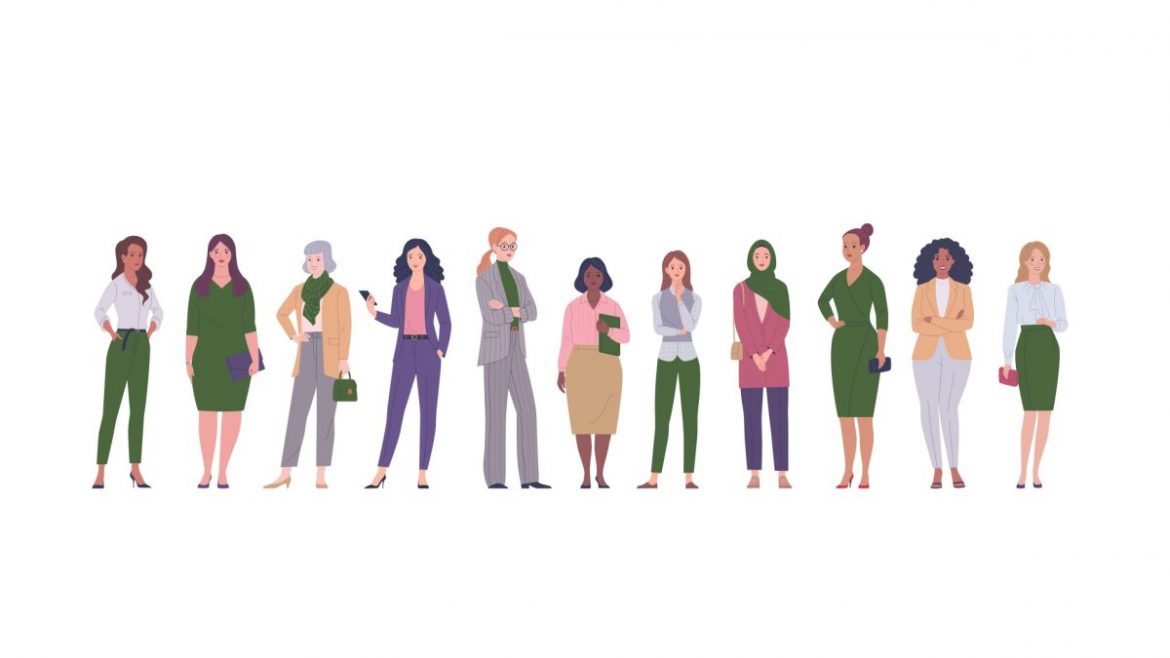By Sue Sveum
According to Fortune, only 8% of CEOs in the U.S. are women. Although these numbers continue to rise, we have a long way to go.
Attracting and retaining women — especially to executive and leadership positions — should be top of mind for companies. Fortunately, Madison does have a number of companies with female leaders. Here’s a glimpse into how they’ve successfully recruited and retained women to their ranks — and how they’re continuing to push these numbers.
UnityPoint Health – Meriter may find the task a little easier than most.
“There’s a longstanding history of women gravitating towards health care with many pathways to leadership roles,” says Shana Wuebben, vice president of human resources. “Our workforce is comprised of 84% females in various health care occupations.” So it’s no surprise to find that the executive team at UPH-Meriter is 71% female. In fact, five of the seven executive-level positions are held by women. And recruiting for these roles has been no problem — they’ve all been promoted from within.
That’s no accident. “We’re fortunate to offer leadership opportunities for team members that have an interest in that track,” says Wuebben. “So, when we have those roles available, we first look to our internal team members seeking opportunities for growth.”
And that policy has also reaped rewards when recruiting externally – because their track record for providing growth opportunities within the organization is something women find attractive.
Promoting work-life balance through an on-site childcare program, as well as paid parental leave, adoption assistance and flexibility to plan time off when it works best, have also drawn women to the organization.
UPH-Meriter also offers a leadership development program and another that focuses on the needs of a diverse population – supporting employees’ personal and work lives, mental and emotional health, and financial wellbeing, while offering career growth and recognition.
“We recognize that we’re only a single part of our team members’ lives,” says Wuebben, “but we do our best to offer a variety of options that make working at Meriter fit well into their lives.”
Notable Madison employer American Family Insurance, whose campus is on the city’s east side, not only has a number of female executives in its C-suite (though its CEO is not female), it offers many advancement and mentoring programs specifically for women at the company.
“At American Family, we have a purposeful strategy to advance and develop the women in the company. There are formal and informal opportunities to reach woman to be able to customize their development to support their personal career goals,” says spokesperson Janet Masters.
American Family has sponsored over 200 women at the Women In Leadership Institute, a global summit with learning opportunities, keynotes and individualized leadership action plans for women. Since 2020, they’ve also partnered with Building Brave, which is an online mentoring platform and mentoring community for women. It provides a virtual “connection point” for women in the company to seek and share advice and guidance. (Building Brave was founded by Mary Burke, a BRAVA Woman to Watch.) High-potential women can also participate in Mettacool’s Collective Advancement Academy, an intensive 12-month leadership program for women with complex or leadership roles with the company. And, a Women’s Business Resource Group offers an array of programs and events for employees in a number of areas, including career development.
According to Renee Moe, president and CEO of United Way of Dane County, nonprofits are a sector that traditionally see more women in the workforce. “Our organization attracts individuals that have a passion for their work,” she says, crediting their recruiting success to a meaningful and measurable mission, strong and family-friendly work culture, and competitive salaries with strong benefits.
“While these are not unique to women, much of our work assists and benefits women and children — making it appealing to strong and talented individuals,” she says. “In our case, many of them happen to be women!”
Moe stresses however, that having a diverse team is critical to achieving their mission in uniting the community.
“We strive to ensure all staff can grow in their roles through training and opportunities to engage with the community and other partners,” she says. “Our team members are fortunate to have access to volunteers and partners across the community — providing some very inspiring and effective professional development.” United Way’s retention rate is a very strong 80%.
“A good workplace for women is ideally a good workplace for every staff member,” stresses Moe. “People want to be challenged in their work, recognized for their efforts and outcomes, and know their efforts are making a difference. We work to provide that.”
Saran Ouk, Office of Business Resources manager for the City of Madison’s Economic Development Division, agrees, adding that a good workplace for women is one where they can feel free to speak their minds, share ideas and be heard. “Good benefits such as healthcare, maternity leave, daycare and hybrid work schedules also contribute to a good workplace for women,” she says. Ouk credits recruiting as a big reason for women holding various leadership roles with the city. Their success in recruiting is due to job descriptions that are inclusive along with promoting positions to organizations or groups that work with women. And when it comes to retaining women, she says professional development training and a positive work culture for women are responsible.
Ouk brings her experience as founder of the nonprofit conNEXTions — focused on helping women and people of color achieve their career goals — to her current role. “When working with women, especially women of color, we have to understand the barriers they face,” she explains. “Lower confidence, lower pay, discrimination, etc.”
“The city has taken steps and is continuously reviewing our programs and policies to ensure that we’re eliminating barriers for women to apply and get the job,” says Ouk. “For me personally, having women in leadership roles who are mentors plays a huge role.”
The People Company Consulting Group is a diversity, equity and inclusion consultancy that provides organizational training and diversity practitioner certification. Founder and chief consultant Deborah Biddle looks for people who embody their mission of “helping people think better, be better and do better.”
“Women are especially attracted to our company because of that mission,” she explains.
Because of their consulting services, Biddle says it’s important to model what they’re encouraging other organizations to do.
“We intentionally seek out partners who are women and people of color to support them as part of the entrepreneurial ecosystem of diversity,” she explains, adding that 66% of their executive team is female. “We can speak authentically about the benefits of having a multi-ethnic, multicultural, multi- generational, multi-gender team.”
She points out that women are often caught in the double-bind of being expected to work hard and be successful — but not too successful. Other times, women feel that to fit in better, they need to be more like men. “We’re criticized if we’re too emotional — and if we’re too harsh,” says Biddle. “That results in confusing messaging about how to succeed.”
But a good work environment goes a long way toward attracting, retaining — and helping women succeed — in leadership roles. So, what makes for a good workplace? Biddle offers these tenets:
- Empower women to develop and excel.
- Provide flexible work options that may better fit their lifestyle.
- Train and educate leaders about gender bias in the workplace.
- Assess the work environment to identify and eliminate ways women are at risk of stereotypic bias.
Good employers know that girls — and women — don’t just want to have fun. They want to make a difference, be appreciated — and maintain a healthy work-life balance. That’s what makes work fun.
Read more from our “What Women Want at Work” feature here.




